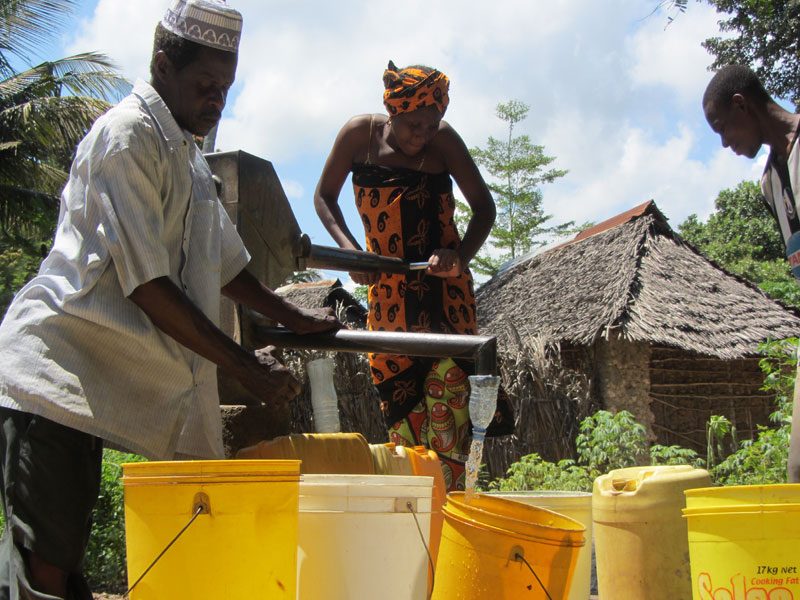The University has launched an appeal to raise £50,000 towards the development of its Smart Handpump technology, which is designed to improve the sustainability of water supplies in rural Africa.
Around 275 million people in Africa don't have reliable access to drinking water. Many rural communities depend on handpumps to access groundwater, yet one in four of these pumps is broken at any given time. Long delays to repair out-of-action handpumps often force households to collect water from alternative sources, which may be miles away, less clean or expensive.

To help change this, researchers at the University of Oxford have developed 'smart' handpumps, which use mobile phone technology to monitor how the pumps are functioning. This data is then transmitted via SMS to maintenance partners FundiFix, a Kenyan social enterprise. Using the data generated by the Smart Handpumps, FundiFix has already reduced waiting times for repairs from weeks or months to just a few days.
Patrick Thomson, Lead Researcher for the Smith School of Enterprise and the Environment's Water Programme says: 'Our work to date with FundiFix in Kenya and the team here in Oxford has given tens of thousands of people access to a reliable water supply, but to be able to scale this up from a research project into something that can help more, we need your support.'
The money raised through the campaign will enable Patrick and his team to deploy this innovative technology more widely. They also plan to develop an improved IT infrastructure that can capture information from pumps across the continent using 4G mobile networks. This data can then be shared with local engineers, governments, NGOs and charities to ensure that water keeps flowing.
Jacob Katuva, Co-Director of Fundifix Limited says: 'We have been in operation for the last five years and so far, we have benefited 70,000 people and over 20,000 schoolgoing children in rural Kenya. What Fundifix has been doing is just a drop in the ocean. There is more that needs to be done.'
Every drop counts, and every donation made to the appeal will count twice as much. The campaign is being supported by the Global Challenges Research Fund, which has committed to match the first £25,000 raised.